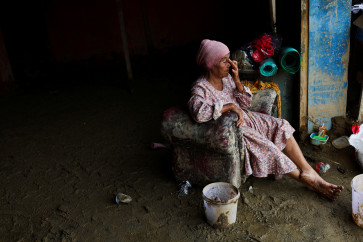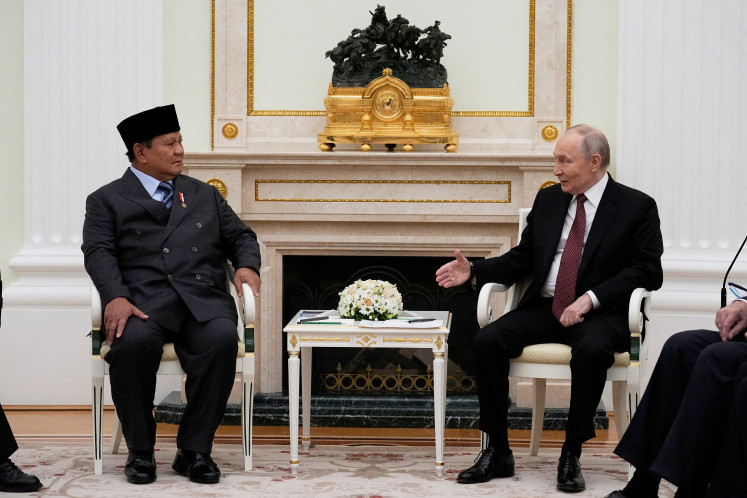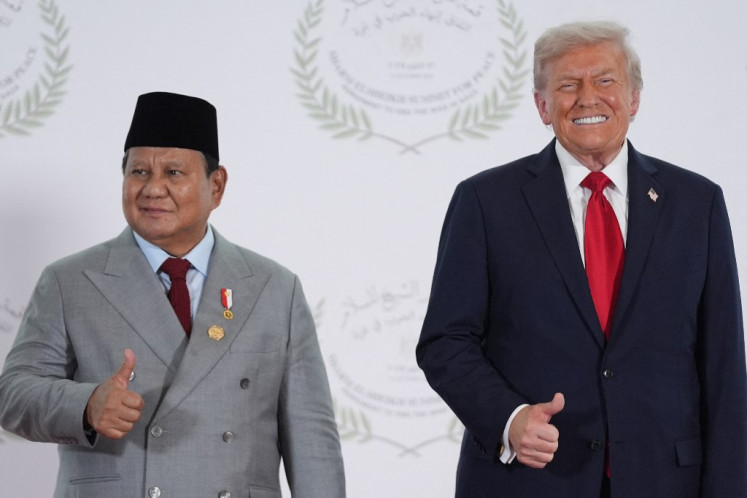Popular Reads
Top Results
Can't find what you're looking for?
View all search resultsPopular Reads
Top Results
Can't find what you're looking for?
View all search resultsTISA to haunt developing nations after Bali
Negotiations on the trade in services agreement (TISA) are intensifying, an instrument allegedly designed by developed nations to exercise more control over developing countries after the World Trade Organization (WTO) meeting in Bali
Change text size
Gift Premium Articles
to Anyone
Negotiations on the trade in services agreement (TISA) are intensifying, an instrument allegedly designed by developed nations to exercise more control over developing countries after the World Trade Organization (WTO) meeting in Bali.
TISA, jointly initiated by the US, the European Union and Australia, is aimed at liberating the service sector amid a stalemate in multilateral trade in service negotiations under the WTO.
But Indonesia, a WTO member whose service sector only contributes around 20 to 30 percent to the country's gross domestic product (GDP), does not belong in the TISA circle, analysts and businesspeople say.
'We aren't ready to be part of it because our balance of trade in services is still in deficit, which continues to rise,' Gadjah Mada University (UGM) economic scholar Sri Adiningsih said on Friday via telephone.
'Even our balance of trade in goods, which used to post surpluses, is now in deficit.'
Indonesia's trade balance of goods has been in deficit in seven out of 10 months this year before making a monthly surplus of US$42.4 million in October on the weak rupiah.
Indonesian Employers Association (Apindo) chairman Sofjan Wanandi agreed with Sri, saying it would be hard for the country's service industry players to
compete in the global market at a time it suffered a $10 billion to $15 billion deficit every year in trade in services.
'Even Singapore, which we all know is quite strong in services, is yet to determine its decision [in regard to TISA],' he said.
At least 50 countries, including the world's largest exporter of services ' the US ' are taking part in the TISA negotiations that began earlier this year. No country in Southeast Asia is involved.
Sri warned Indonesia should not fall into same trap made by developed nations like the US, with 80 percent of the latter's economic output coming from the services sector.
The livelihoods of developing countries could be under threat, with TISA being outside the global trade governing body, she said.
Switzerland-based NGO Public Services International (PSI) general secretary Rosa Pavanelli also noted a possible threat posed by developed nations through TISA.
'They're negotiating without the control of the WTO system. Strong economies can always blackmail smaller ones [in TISA negotiations],' she said in a discussion on Friday on the sidelines of the ninth WTO Ministerial Meeting.
Laura del Rosario, undersecretary for international economic relations at the Philippine Department of Foreign Affairs, said her government was still weighing the pros and cons of joining TISA.
'We are after the framework of services and we are after the vision also,' she told The Jakarta Post after a discussion held by the International Centre for Trade and Sustainable Development (ICTSD) on Thursday.
But ICTSD senior fellow Sherry Stephenson dismissed the allegation, saying the TISA was meant to revive talks about trade in services that had been neglected for almost 20 years.
'What countries are trying to do is to look at the achievements of their different regional agreements and compare the provisions and to try to take some of the best examples that work in services and put them into an agreement that is GATS [General Agreement on Trade in Services]-compatible,' she said after the ICTSD's discussion.
Costa Rican Foreign Trade Minister Anabel Gonzalez said her country would benefit from the TISA.
'It's an opportunity to export services. Participating and negotiating in the TISA is very important for developing a small developing country like Costa Rica,' she said after the ICTSD's discussion.










